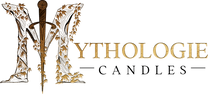The Enduring Influence of Norse Mythology on Classic Literature
Norse mythology, with its rich tapestry of gods, giants, and heroes, has inspired countless authors across various periods of literary history. The myths and legends from the Norse tradition have provided a fertile ground for storytelling, influencing genres ranging from epic fantasy to philosophical poetry. Travel down the rainbow bridge with us to explore the profound impact of Norse mythology on some of the most notable classic literature authors and how these ancient tales have shaped their works and contributed to the enduring appeal of these narratives.

J.R.R. Tolkien: The Master of Epic Fantasy
J.R.R. Tolkien, a professor of Anglo-Saxon at Oxford University, was deeply influenced by Norse and Germanic mythology, languages, and literature. His scholarly background provided him with a deep understanding of these ancient traditions, which he skillfully wove into his own creative works. Tolkien's ability to blend epic mythological elements with his own imaginative storytelling has made his works timeless classics.
William Shakespeare: The Bard’s Scandinavian Connection
While primarily known for his plays set in various locations around the world, William Shakespeare occasionally drew upon Norse mythology. His ability to incorporate diverse influences into his works is a testament to his literary genius. Hamlet is perhaps the most significant example of Shakespeare’s engagement with Norse mythology. The play has its roots in the Scandinavian legend of Amleth, a tale of revenge and tragedy. Shakespeare's adaptation of this legend into a complex and introspective drama highlights the universal themes of human experience that Norse myths often explore.
Richard Wagner: The Composer’s Mythological Mastery
Richard Wagner, although primarily known as a composer, made profound contributions to literature through his operas. His use of mythological motifs in his compositions has left an indelible mark on the world of classical music and literature. Wagner’s Ring Cycle is heavily influenced by Norse mythology, drawing characters and themes from the Volsunga Saga and the Poetic Edda. The operatic series explores grand themes of power, love, and destiny, resonating with the epic scope of the Norse myths. Wagner’s ability to translate these ancient stories into powerful musical and dramatic works underscores the timeless appeal of Norse mythology.
George MacDonald: Subtle Infusions of Myth
An influential figure in the field of fantasy literature, George MacDonald was a mentor to Lewis Carroll and a pioneer in the genre. His works often explore profound themes through imaginative storytelling. MacDonald infused subtle elements of Norse mythology into his narratives. His works frequently include themes of death and rebirth, prevalent in Norse myths. This subtle incorporation of mythological elements adds depth to his stories, enriching the reader’s experience.
H. Rider Haggard: Adventure and Myth
H. Rider Haggard is known for his adventure novels set in exotic locations. His ability to blend historical fiction with mythological elements has captivated readers for generations. In Eric Brighteyes, Haggard directly draws upon Norse mythology, crafting a story that combines historical fiction with mythological elements. The novel’s rich narrative and vivid characters reflect the influence of Norse sagas, bringing the ancient myths to life in a new context.
Thomas Gray: Elegies and Epic Tales
Thomas Gray, an English poet and scholar, is renowned for his elegies and reflective poetry. His ability to evoke deep emotions through his works has made him a significant figure in English literature. Gray’s poem The Fatal Sisters is based on Norse mythology, drawing from sagas and Eddas to create an atmosphere steeped in the tragic destinies of its characters. The poem’s exploration of fate and destiny reflects the profound influence of Norse myths on Gray’s literary vision.
Matthew Arnold: Victorian Lamentations
A Victorian poet and cultural critic, Matthew Arnold’s works often reflect his deep engagement with classical and mythological themes. Arnold’s poem Balder Dead is a lamentation on the death of the beloved Norse god Balder. The poem captures the deep emotional resonance of Norse myths, exploring themes of loss and mourning that are central to the human experience.
Conclusion
These authors demonstrate how Norse mythology has been a versatile and rich source of inspiration, influencing a wide range of literary genres. The ancient myths provided a foundation for exploring fundamental human questions and themes, such as fate, heroism, and the struggle against chaos, which remain relevant today!




